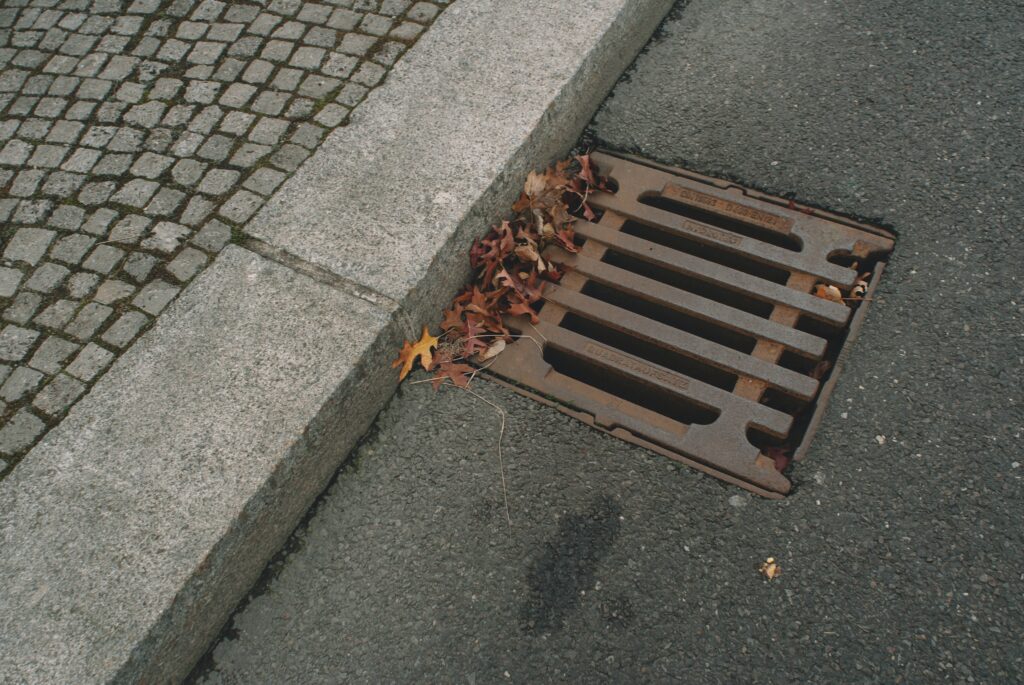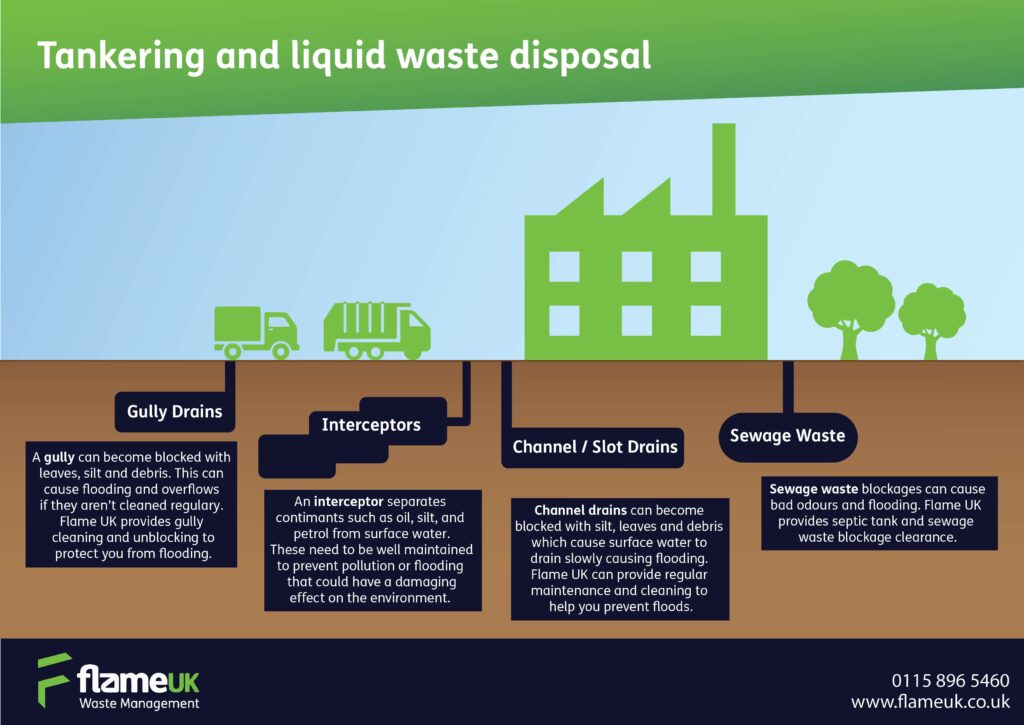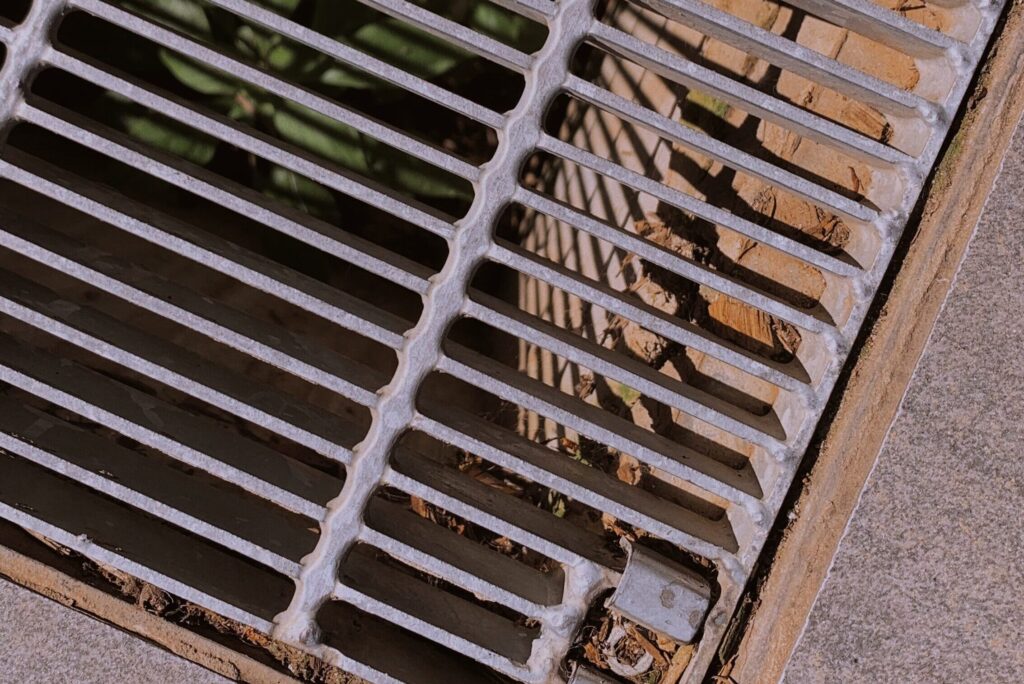BLOG
How to avoid flooding this autumn

Avoiding flooding on your site
This time of year, maintaining your site premises is imperative to avoid flooding to your site and the surrounding areas. You may have noticed with the rain we’ve had over the last weeks that your drains and gullies are not draining adequately – maybe they are slow draining or flooding – this indicates that they are blocked and need cleaning.
Falling leaves and debris easily get trapped in your drains and gullies and cause flooding to your site, and this is exacerbated by any prolonged rain spells. Autumn and Winter can make things worse so it’s important to be prepared.
Any hard standing areas in your site – for example your forecourt, car park, loading bay, vehicle washdown area or site yard – will be served by a combination of drains, channels, gullies and interceptor tanks.
Your drains and interceptors will be working hard to make sure that oil, grease, debris and dirt are not released into the environment; and to drain surface water to prevent your site from flooding, especially in areas of high volumes of traffic movement.
Drains and gullies
Your site premises may have a number of different types of drains, all of which need maintenance and cleaning to ensure they operate adequately. As we know, falling leaves and debris can block drains. Periods of heavy continued rain can make this worse, washing debris into the drains and causing them to block and therefore not drain the surface water away properly or ponding. Further rain may be too much for your drains to cope with, resulting in flash flooding on your site.
Slotted or channel drains – also called ACO drains – are the long narrow drains that are common on hard surfaces such as concrete and tarmac. They are used in site yards, car parks and near pavements and you are likely to have some of these on your premises. Water drains along the entire length, but they can become blocked very easily. These types of drains should be cleaned regularly, it is easy to keep on top of as you can see when they become blocked or are draining slowly.
Your site will also have gullies – a gully or gully trap allows debris to be caught at the bottom of a trap within a drain, allowing rain water to drain into the mains systems. If the gully becomes full of debris, the water will not drain adequately causing flooding to your site. Again, it is easier to keep on top of regular cleaning and maintenance than to deal with a blocked gully.

Interceptor tanks
Interceptor tanks can also become flooded if they get blocked by leaves and debris, and oil which can cause flooding and environmental contamination.
Interceptor tanks collect and hold contaminants such as silt, oil, petrol and brake dust. They usually have two or three chambers which filter and catch the debris, allowing waste water to be discharged safely into the mains sewerage system.
If your tank is not emptied and maintained regularly (called tankering), the chambers can fill up with debris, meaning that contaminants could escape alongside the waste water and cause pollution.
Under the Water Resources Act 1991, you must not allow your business to allow pollution – it is an office to knowingly permit any pollution or noxious substances into the watercourses and environment. This means that you are responsible for making sure that your interceptor tanks are working efficiently and not allowing chambers to overflow and wash contaminants into the waste water system. To prevent any oil, oily water, petrol or other debris flooding onto your site premises or into water courses and sewage systems, you must make sure that your interceptor is regularly emptied and maintained. If you pollute, you could get an unlimited fine, go to prison for up to 5 years, or both.
It’s recommended that interceptors are tankered every three to six months to ensure that they are operating effectively and to avoid flooding. This time of year is great to make sure that your tanks are maintained and cleaned. Heavy autumnal rain can cause more waste to accumulate in the interceptor, so it’s important to ensure that it’s not full before winter.
Of course if you have a busy site, with lots of vehicle movement, car parks or washdown areas, you’ll need to ensure that your tankering is done more frequently to ensure that the interceptors are able to do the job properly.
Contact us if you need help with cleaning and maintaining the drains on you business premises – from one off cleans to regular maintenance programmes.






